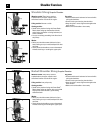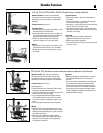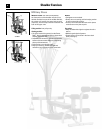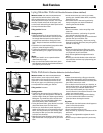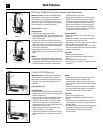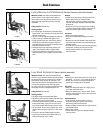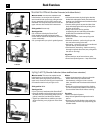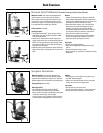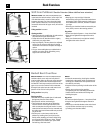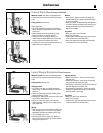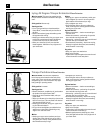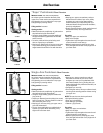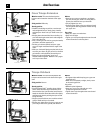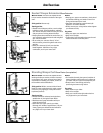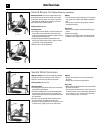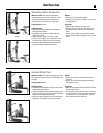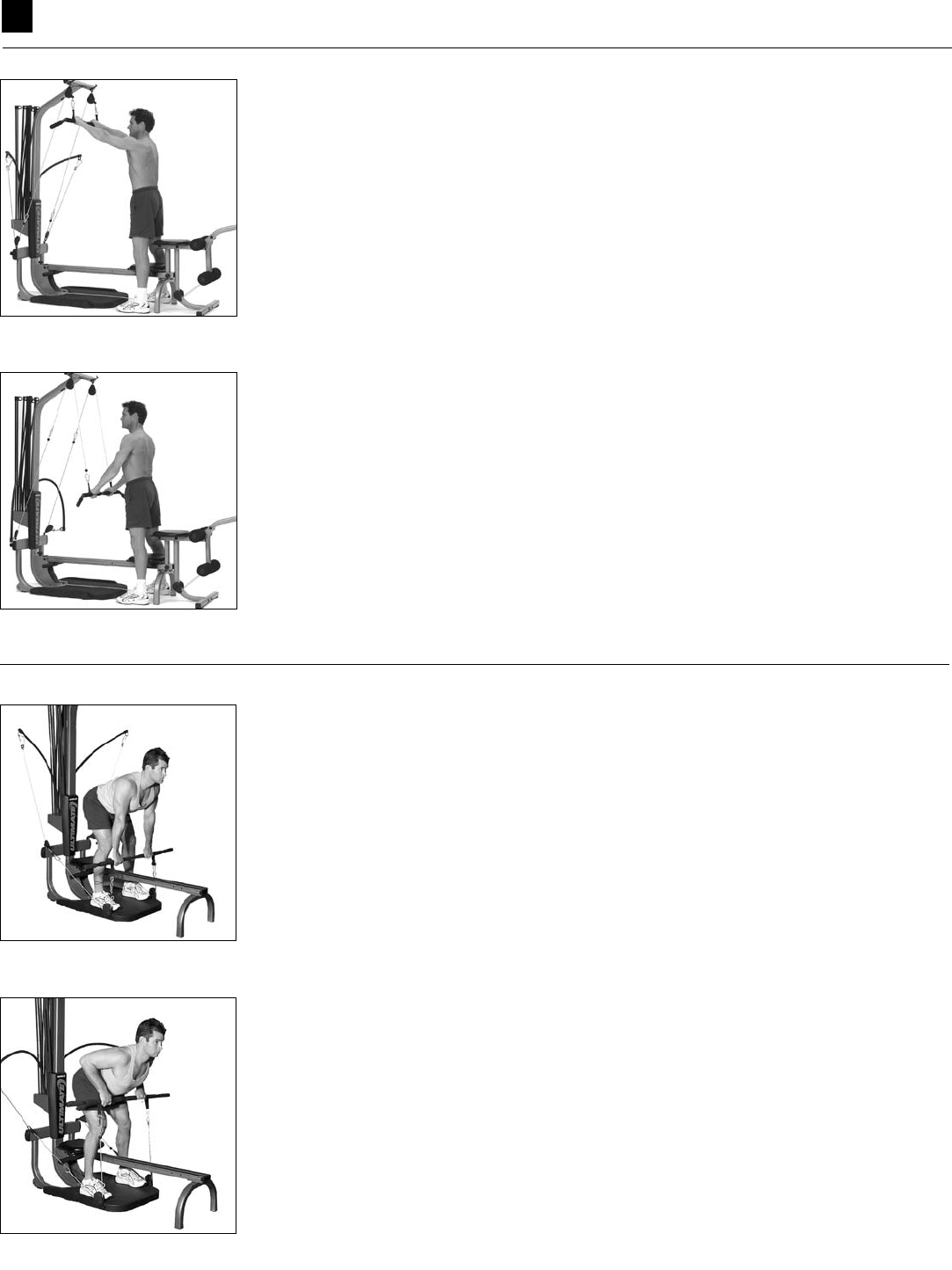
38
Back Exercises
FINISH
START
Muscles worked: This exercise emphasizes your
upper back (the latissimus dorsi, teres major and
rear deltoid muscles), as well as the muscles
between the lower part of your shoulder blades
(lower trapezius muscles). The triceps muscles,
located on the back of the upper arms, will also be
involved.
Pulley position: Lat tower.
Starting position:
• Remove the bench, straddle the rail and stand on
the platform facing the Power Rods
®
.
• Grasp the lat bar at shoulder width or slightly
wider with your palms down.
• Step back slightly. This may have to be adjusted
on the first rep to insure that there is enough
movement in the cable to complete the range of
motion.
• Lift your chest and tighten your abdominals to
stabilize your spine while maintaining a very
slight arch in the lower back.
Motion:
• Keeping your arms straight, initiate the
movement by pulling your shoulder blades down
and together while simultaneously drawing your
arms downward to the front, and then in toward
your legs.
• Allowing your shoulder blades to move with your
arms, slowly return to the starting position.
Key points:
• Do not lose spinal alignment — keep chest lifted.
• Keep the lats tightened throughout the entire
motion.
• Keep your elbows nearly straight (not locked)
throughout the entire exercise.
Stiff-Arm Pulldown Shoulder Extension (elbow stabilized near extension)
FINISH
START
Muscles worked: This exercise emphasizes the
latissimus dorsi, teres major and rear deltoid
muscles which make up the large pulling muscles
of your upper back as well as the trapezius and
rhomboids. The biceps muscles on the front of the
upper arms are also involved in this movement.
Strength in the spinal erectors and control over
posture will be critical in this position.
Pulley position: Low pulley.
Starting position:
• Remove the bench, straddle the rail and stand
facing away from the Power Rods
®
.
• Grasp the bar with an overhand grip.
• The bar harness may have to be adjusted to
insure that there is enough movement in the
cable to complete the range of motion. In some
cases the harness may have to be removed and
the cable snap hook connected directly to the D-
ring of the bar.
• Position your trunk almost parallel to the
platform by bending from your hips (not the
waist) and by bending your knees and sticking
your hips out while lifting your chest. Tighten
your abdominals to stabilize your spine while
maintaining a flat lower back.
Motion:
• Initiate the movement by pinching the shoulder
blades back and together while simultaneously
drawing your elbows back and upward toward
the sides of your body.
• Keep the forearms pointing in the direction of the
cable.
• Slowly return to the starting position,
straightening the arm and letting the shoulder
blades slide forward without slouching and
bending the spine.
Key points:
• Do not lose spinal alignment — keep chest lifted.
• Keep the lats tightened throughout the entire
motion.
• Release your shoulder blades at the end of each
rep and initiate each new rep by retracting
(pinching) your shoulder blades.
Barbell Bent Over Row



